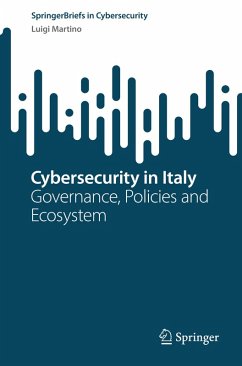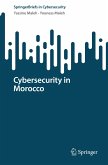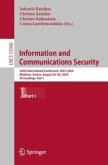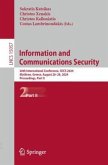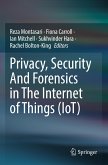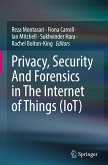This book presents a detailed and innovative analysis of the governance, policies and ecosystem that define the Italian cybersecurity posture. It explores the complex interplay between technology and policy in shaping national security strategies in the digital era. The author introduces the reader to the critical importance of a policy-driven approach to cyber security, highlighting the challenges and necessary evolution prompted by rapid technological advancements and the expanding relevance of cyberspace. It emphasizes the multifaceted nature of cyber security that extends beyond technological solutions to encompass a broad socio-political analytical framework. The author also illustrates the need for an integrated approach that includes policies development, stakeholder engagement and strategic national objectives.
This book delves into the organizational structure and dynamics of Italian national cybersecurity ecosystem, while shedding light on the collaborative interactions among different actors within this complex field. It meticulously outlines the roles and responsibilities of public, private and civil sectors in enhancing Italy's cyber resilience. Key developments such as the establishment of the National Cybersecurity Agency and the formulation of strategic objectives to safeguard national cyber perimeter are critically examined. This examination not only reflects on the strategies employed but also on the challenges and achievements in fostering a robust cyber security environment able to respond to both current and emerging threats. Through a blend of theoretical insights and practical case studies, supplemented by more than 30 semi-structured interviewees. This book also offers a comprehensive overview of efforts implemented by Italy in 10 years of policy making experience with the aim to structure the appropriate cyber security national institutional architecture. It provides valuable perspectives on the effectiveness of these policies, the ongoing adjustments required to address the fluid nature of cyber threats, and the implications of these efforts on both national and international scales.
Upper-under graduate level and graduate level students in computer science or students interested in cybersecurity will want to purchase this book as a study guide. Researchers working in cybersecurity as well as Policy Makers, Legislators, Decision Makers and CISO will also want to purchase this book as a reference book.
This book delves into the organizational structure and dynamics of Italian national cybersecurity ecosystem, while shedding light on the collaborative interactions among different actors within this complex field. It meticulously outlines the roles and responsibilities of public, private and civil sectors in enhancing Italy's cyber resilience. Key developments such as the establishment of the National Cybersecurity Agency and the formulation of strategic objectives to safeguard national cyber perimeter are critically examined. This examination not only reflects on the strategies employed but also on the challenges and achievements in fostering a robust cyber security environment able to respond to both current and emerging threats. Through a blend of theoretical insights and practical case studies, supplemented by more than 30 semi-structured interviewees. This book also offers a comprehensive overview of efforts implemented by Italy in 10 years of policy making experience with the aim to structure the appropriate cyber security national institutional architecture. It provides valuable perspectives on the effectiveness of these policies, the ongoing adjustments required to address the fluid nature of cyber threats, and the implications of these efforts on both national and international scales.
Upper-under graduate level and graduate level students in computer science or students interested in cybersecurity will want to purchase this book as a study guide. Researchers working in cybersecurity as well as Policy Makers, Legislators, Decision Makers and CISO will also want to purchase this book as a reference book.

